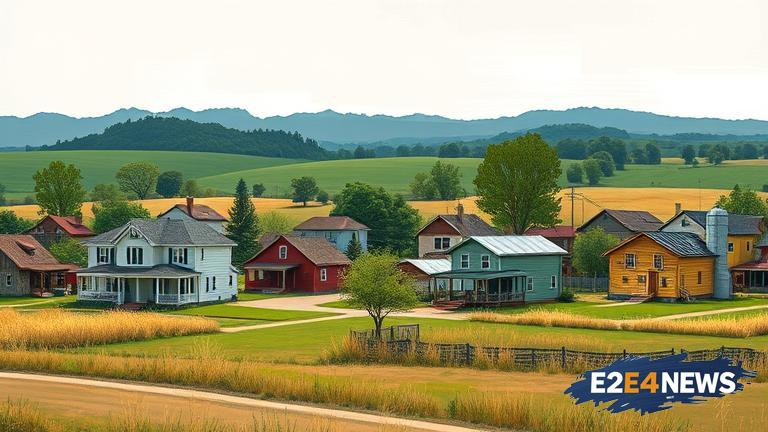The issue of affordable housing in rural America has been a longstanding concern, with many communities struggling to provide adequate and affordable housing options for their residents. Recently, a hearing was held to discuss the challenges and potential solutions to this problem, with a focus on hub locations. Vaden, a leading expert in the field, touted the importance of home affordability in these areas, citing the numerous benefits it can bring to local economies and communities. According to Vaden, affordable housing is essential for attracting and retaining businesses, jobs, and talent in rural areas. Without it, these communities risk being left behind, as people are forced to seek more affordable options elsewhere. The hearing also highlighted the need for innovative solutions to address the growing housing crisis, including the use of modular homes, community land trusts, and other forms of affordable housing. Experts emphasized that a one-size-fits-all approach will not work, and that each community must be allowed to develop its own unique solutions to the housing crisis. Furthermore, the importance of preserving existing affordable housing stock was also stressed, as well as the need for increased funding and resources to support affordable housing initiatives. The hearing also touched on the role of government policies and regulations in addressing the housing crisis, with some experts arguing that current policies are often overly restrictive and hinder the development of affordable housing. Others emphasized the need for more flexible and adaptive policies that can respond to the unique needs and challenges of rural communities. In addition, the hearing highlighted the importance of community engagement and participation in the development of affordable housing solutions. By involving local residents and stakeholders in the planning and decision-making process, communities can ensure that their affordable housing initiatives are tailored to their specific needs and priorities. The hearing also emphasized the need for greater collaboration and coordination between different levels of government, as well as between government agencies and private sector organizations. By working together, these entities can leverage their resources and expertise to develop more effective and sustainable affordable housing solutions. Moreover, the hearing stressed the importance of addressing the root causes of the housing crisis, including poverty, lack of affordable housing stock, and limited access to credit and financing. Experts argued that simply treating the symptoms of the crisis will not be enough, and that a more comprehensive and holistic approach is needed to address the underlying issues. The hearing also highlighted the potential benefits of affordable housing for rural communities, including increased economic growth, improved health outcomes, and enhanced quality of life. By providing affordable housing options, communities can attract and retain businesses, jobs, and talent, which can help to stimulate local economies and improve living standards. Additionally, affordable housing can help to reduce poverty and inequality, as well as improve access to education, healthcare, and other essential services. In conclusion, the hearing emphasized the urgent need for affordable housing solutions in rural America, particularly in hub locations. By working together and developing innovative and tailored solutions, communities can address the growing housing crisis and create more prosperous, equitable, and sustainable futures for their residents. The importance of home affordability in hub locations cannot be overstated, and it is essential that policymakers, practitioners, and community leaders prioritize this issue in the months and years ahead. With the right approach and support, rural America can thrive and provide a high quality of life for all its residents. The hearing was a crucial step in this direction, and it is hoped that it will serve as a catalyst for further action and progress on this critical issue. As the conversation around affordable housing continues to evolve, it is essential that the needs and concerns of rural communities are taken into account, and that solutions are developed that are tailored to their unique challenges and opportunities. By doing so, we can ensure that all Americans have access to safe, affordable, and decent housing, regardless of where they live. The future of rural America depends on it, and it is our collective responsibility to make it happen.
